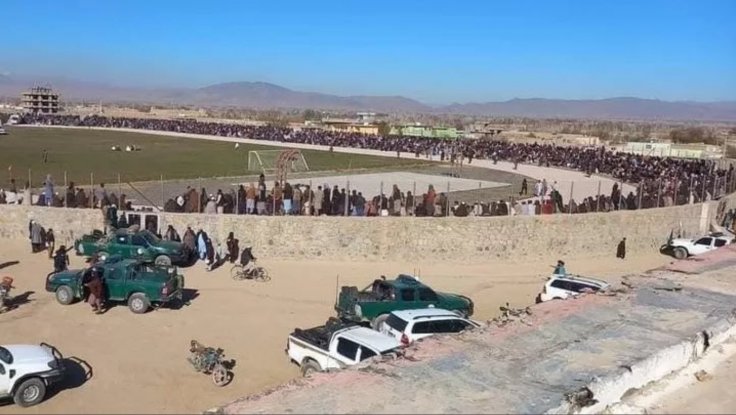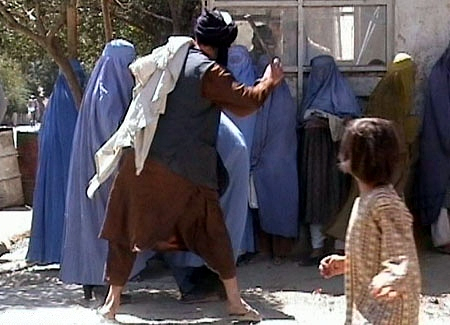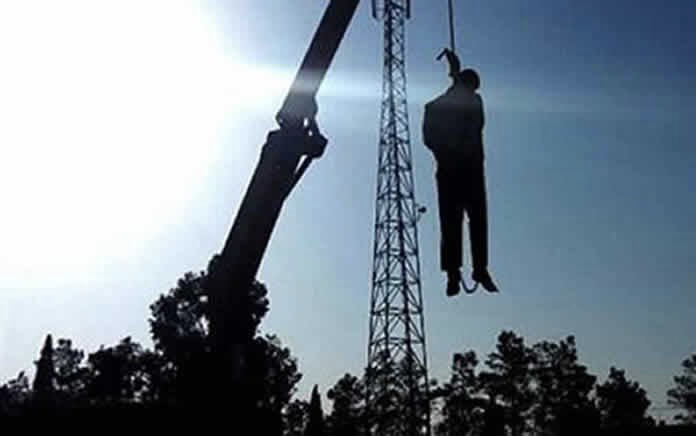An Afghan man convicted of murder was publicly executed on Wednesday in what is believed to be the first execution since the hardline Islamists returned to power last year. The Taliban confirmed that the convicted man was publicly shot dead at a crowded sports stadium in the southwestern Farah province after he confessed to killing another man.
The execution comes less than a month after Hibatullah Akhundzada, the supreme leader of the Taliban, ordered judges to fully implement aspects of Islamic law, such as public executions, stonings and floggings, and the amputation of limbs of thieves. Since then, several floggings have been carried out in Afghanistan.
Taliban Terror Resurfaces

It is not known if the Taliban have been carrying out public executions lately but at least Wednesday's one is the first to be officially acknowledged. "The supreme court was instructed to implement this order of qisas in a public gathering of compatriots," Taliban spokesman Zabihullah Mujahid said in a statement, referring to the 'eye for an eye' justice in Islamic law.
According to Mujahid, the issue was looked at by three tribunals and approved by the group's top spiritual leader, who is based in southern Kandahar Province.
He continued that the execution was attended by more than a dozen senior Taliban figures, including Sirajuddin Haqqani, the country's acting interior minister, and Abdul Ghani Baradar, the acting deputy prime minister, in addition to the acting chief justice, acting foreign minister, and acting education minister.

The statement identified the man who was executed as Tajmir, the son of Ghulam Sarwar, and stated that he resided in the Anjil area of the province of Herat. According to the report, Tajmir stabbed a man to death in 2017 before stealing his motorcycle and mobile phone.
"Later, this person was recognized by the heirs of the deceased," it said, adding Tajmir had admitted his guilt.
The execution was carried out by the father of the victim, who shot the man three times, Mujahid added in a later statement.
Nothing Less Than Death
The execution took place following the country's highest court's announcement that public beatings of men and women convicted of crimes like robbery and adultery had occurred in various regions recently, a possible return of practices customary under the Taliban's hardline rule in the 1990s.

Last month, a representative of the UN human rights office urged the Taliban's leadership to quickly put an end to public floggings in Afghanistan.
According to a court statement, Haibatullah Akhundzada, the Taliban's highest spiritual leader, met with judges in November and urged them to administer sentences in line with sharia law.
Under the Taliban's previous regime from 1996 to 2001, there were public beatings and stoning deaths.
The Taliban often carried out punishments in public, during its initial rule, which ended in late 2001, including hangings and floggings at Kabul's national stadium, which local Afghans were invited to attend.

Although the hardline Islamists had pledged a milder rule this time, they have imposed ever-sharper restrictions on Afghans' daily life. Since the Taliban's return, women in particular have been gradually pushed out of public life.
Government employees have lost their jobs or are receiving pittances to stay at home, and women are prohibited from traveling alone and are required to wear burqas or headscarves whenever they leave the house.
Additionally, most of the country's high schools for teenage girls have been closed for almost a year.









